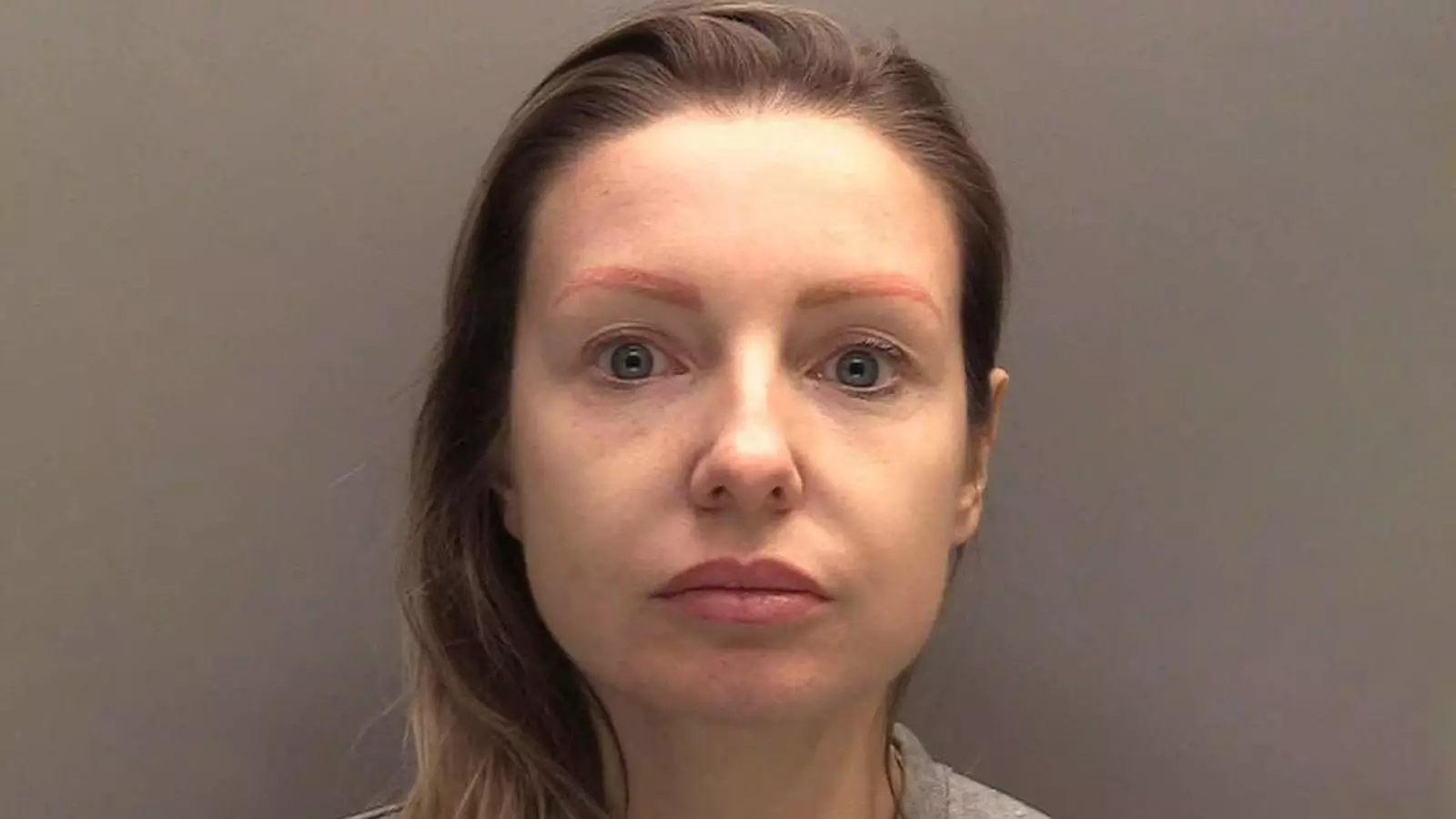The recent case involving Kerri Pegg, a former governor at HMP Kirkham, lays bare a troubling reality within our correctional systems: the fragility of moral integrity among those entrusted with the daunting responsibility of rehabilitation. Sentenced to nine years for her inappropriate relationship with Anthony Saunderson, a notorious drug kingpin, Pegg’s actions have sent shockwaves through not just the prison system but also the public’s perception of authority figures. For those who champion transparency and accountability, Pegg’s case serves as both a stark warning and a reminder of the potential for corruption in seemingly secure environments.
Decline of Decency and Accountability
Pegg’s trajectory from a promising leader to a figure of public disgrace fuels a debate on the systemic issues embedded within correctional facilities. The position of a prison governor is inherently powerful; it encapsulates both authority and the responsibility to protect public safety. Yet, here we have a governor who, instead of using her position to uplift those in her care, became entangled with one of the very criminals she was supposed to manage. This begs the question: What safeguards are in place to prevent manipulative individuals from exploiting their authority?
The fact that Pegg reportedly granted Saunderson unauthorized temporary releases reveals a systemic failure—not just of individual judgment but of institutional oversight. The relationship, which began under the guise of a rehabilitation program aimed at combating substance abuse, devolved into an insidious partnership that wreaked havoc on both their lives. It is damning that a person at Pegg’s level of responsibility could conflate her duty to prisoners with personal feelings for a criminal, even as evidence of her misconduct piled up like the designer goods she never earned.
The Implications of Corruption
In a society that often longs for justice and reformation, Pegg’s actions severely undermine public confidence in the very systems designed to rehabilitate offenders. The revelations that her newfound wealth stemmed from the profits of a drug factory orchestrated by Saunderson intensify concerns about the murky intersection of authority and criminality. If a governor can be so easily seduced by the spoils of illegal activity, then how do we as a society ensure that other officials operate within the constraints of morality and law? This limited view of power dynamics and accountability offers a breeding ground for mistrust.
Phil Copple, chief executive of HM Prison and Probation Service, articulated a sentiment shared widely: Pegg’s actions betray not just the public but the majority of honest prison staff who wake up each day committed to their roles as stewards of rehabilitation. Her downfall becomes a reflection of a broader issue—one that challenges the ethical decorum associated with positions of power in public service. Trust in institutions is paramount, and individuals like Pegg tarnish that trust, leaving a residue of skepticism that no amount of rhetoric can cleanse.
Lessons from Failure: The Path Forward
As we grapple with cases like Pegg’s, the need for reform within our correctional facilities cannot be overstated. Enhanced training programs focused on ethical decision-making, transparency measures regarding inmate relationships, and firmer consequences for corruption must be implemented. By adopting a proactive approach to safeguarding the integrity of prison operations, we can mitigate similar incidents in the future.
Moreover, society’s perception of punishment must evolve. Being ‘tough on crime’ is not just about the length of sentences; it’s about ensuring that those criminalized are offered paths to rehabilitation devoid of nefarious influence. Programs that empower moral judgment and emphasize consequence can serve as deterrents against mimicking Pegg’s ill-fated choices.
In the eyes of progressives committed to justice reform and responsible governance, Pegg’s case embodies an unwanted truth about the vulnerabilities of authority. We have a responsibility not just to judge but also to improve, lest we find ourselves mired in cycles of corruption and disbelief. The narrative of Pegg and Saunderson should stand as a testament to the urgent need for systemic reforms in our correctional systems, fostering a new era where accountability and integrity prevail over exploitation and deceit.

